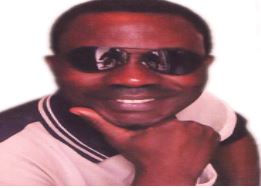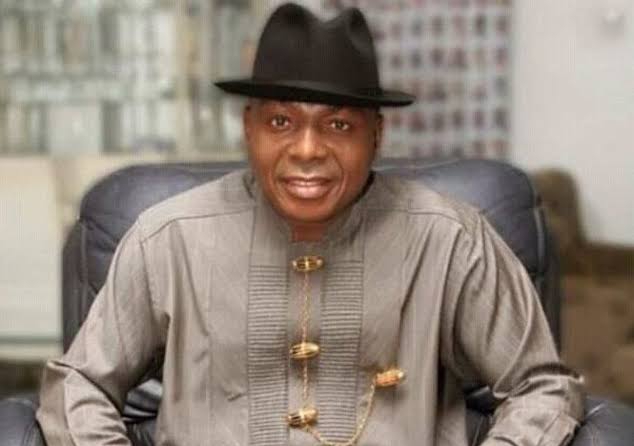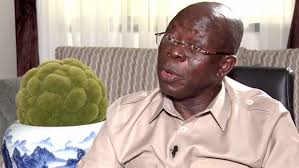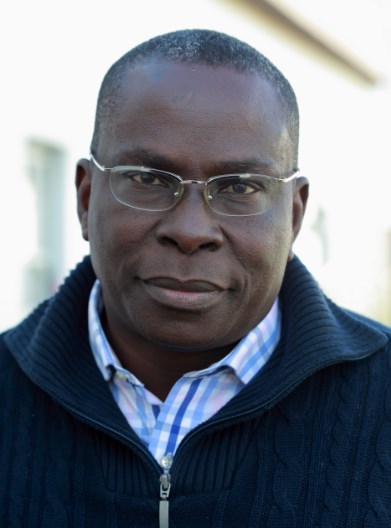By Mideno Bayagbon
I have spent countless hours pondering over the crab mentality among politicians from the Niger Delta region. It surprises me to no end, how they self immolate, inflict damages on themselves, their peers and their zone with selfish impunity. It usually starts out from failure to understand that there is unity in strength; that a self-appointed leader without followers is an unmitigated lone ranger, a disaster waiting to happen. No support in the face of tempest, and he goes down easily when the locust run in. The ambitious lure to engage in national politics, at the top end, is the firing engine that blocks their sense of history. It is little surprise, they end up at the minority junction of Nigerian politics.
For example, when a one time friend was getting carried away with the euphoria of being Managing Director of NIMASA, I cautioned him about the minority junction in Nigerian politics. He didn’t understand me. Not many people do. For the minority junction is a peculiar affliction that descends on people of minority stock in Nigerian politics, where an appointive position, or even an elective one, at the local or national level gets them all giddy and abnormally egoistic. They go into a frenzy, and a delusion of grandeur. They turn their backs on their people, except those who are yes men and women; people ready to go to the depth of hell to make the politician happy and get a mess of pottage in return. They assume their political and economic progress is made and lies in the hands of external forces, especially the northerners, and to some extent the Yorubas. They see them as the lords over their lives, who they must pander to, slavishly. And they delude themselves that their people do not matter to their dreams. Until the bubble burst and they come crashing down from their lilliputian heights.
Today, like my NIMASA DG friend, the current gladiators who are killing themselves over the Niger Delta Development Commission have forgotten what happened to others before them. They appear to be very poor students of history and seemingly know very little about playing Nigerian politics at the national level. Like most discerning people know, the on-going fight has little to do with how the agency can be stopped from being used to service the interests of others outside the Niger Delta. Or how an end can be put to it being the go-to-place for funding elections and the myriads other reasons it has been turned to the milk cow, the bastion of corruption that it is today. The forces at play, like I have mentioned in an earlier article, are trying to outdo each other, showcase themselves as the good boys to their external masters who behold them with scorn. This is especially so as 2023 elections are beginning to come into view. To position themselves, they must destroy their brothers and sisters. Like the slave mentality of old, or like the crab mentality, they destroy others hoping thereby to rise. Yet the NDDC and indeed the political and economic development of the South South are crying for salvation as the people sink deeper into poverty and misery.
Don’t mistake my views. I am all for the cleansing of the NDDC, which I have had cause to call for scrapping. Which means, currently, my hat is in the ring with Chief Godswill Akpabio and the forensic audit team. NO, he is not the cleanest of politicians. He comes with a heavy baggage. But how do you justify the wanton looting of the resources of the Niger Delta where a single individual has over a 1000 contracts awarded him? He collects hundreds of billions and nothing is on ground to justify even a tenth of the money collected. Or how does one justify the young man, who was a Special Assistant to one of the big wigs, who is under EFCC radar now, who collected billions of naira for spurious contracts but pocketed the monies? How does one justify the three trillion naira the commission is said to be owing contractors? But then Akpabio is half smart in illegally disallowing the Board from being sworn in. The NDDC law made no provisions for a perpetual Interim Management Board.
But then, behind the mask is a contest for power, for the leadership of the South-South region. The main gladiators are all currently Abuja based politicians. They are in several formations. There is the one led by Oshiomhole and Ovie Omo-Agege which incongruously, imposed the Deputy Senate President as the APC leader in the South South. There is the Akpabio group trying to bulldoze its way and hoist Akpabio as the leader of the APC South-South, like it audaciously tried to do and failed, in Akwa Ibom, which made leaders like Obong Attah to simply dump the APC. Then there is Rotimi Chibuike Amaechi, the man who stuck out his neck and life to ensure victory for President Buhari in 2015. There is Timipre Sylva and a host of others. They can barely see eye to eye, talk less of coalescing forces to fight for the interest of the South South. It is a game of the self. The people are of little significance.
It is unfortunate that these leaders who emerged from the backwaters of the Niger Delta come with a crab mentality. As it has been proved, if you put ten, twenty or any number of live-crabs in a basket, none is able to climb out. Anyone making progress or attempting to climb out, is quickly brought down by others who believe that the fall of one of their own will enhance their own fortune or progress. This perhaps explains the unfortunate situation of the South-South politicians who daily relive this crab mentality in the process of pursuing individual advantage, hoping thereby to survive in this polity where the odds are stacked in mountain heaps against them.
At the local, state level, those of them who are governors cast a luscious, envious-green eye at Lagos state. They envy the one called the Jagaban, Bola Ahmed Tinubu, and want to be like him in their states. To do this, they cast themselves as the unquestionable demigods, the be all and end all. They assume it is they, and no one else, who must decide who should be councillor, local government chairmen, assembly members, federal legislators and senators. They must decide who would succeed them as governors and deputy governors. They then go all out to look for supposed lackeys and imposed them, above every and any other rightful contender. In this, they are like most Nigerian ex-governors who believe they can still Lord it over their states, even when their tenures have ended. I am forced to think that sometimes they believe that even in death they can raise a hand from the grave to control the governor who sits on the ephemeral throne.
They arrogate so much power to themselves while they are in office. But the day after their tenure ends, they suddenly, surprise themselves. Confounded, they realise, to their great shock, they are mere mortals, after all. They wake up in their luscious mansions, glide down in their usual pomposity, only to find that their parlours and waiting rooms, and indeed their whole expansive houses are empty. They rush to their phones and not a single missed call. Armageddon. They make frantic calls to their supposed die-hard allies. No one picks or returns their calls. It suddenly dawns on them that the average Nigerian politician is treacherous and out only for his stomach. To their shock, they discover that their genuflecting lackeys have moved on to the latest gods, the new dispensers of the commonwealth. They realise, all too late, that they have become phantom leaders without a troop and without a home base.
Just take your mind back to the governors of all the states since 1999 till date. All played the Tinubu card, installed their lackeys and went ahead to attempt to lord it over them and the state. Of them all, only Bola Tinubu of Lagos, and James Ibori of Delta state succeeded in this quest. The rest, who successfully installed their successors, have lived to drink the bitter venom of the new gods in power. Take the three current cases, Godswill Akpabio and Udom Emmanuel, (Akwa Ibom), Rabiu Kwankwaso and Ganduje of Kano state and Adams Oshiomhole and Godwin Obaseki (Edo) as stark examples.
That has informed why almost all past governors now struggle to secure a seat and find relevance in the senate.
True, the politicians in the South-South or Niger Delta, as they are also called, do not have a franchise on the vices listed above. The ones in the South East are equally as bad, if not worse, despite having the umbrella Igbo social-cultural group, Ohaneze Ndigbo which aggregates their ethnic group. But unlike the politicians of the Niger Delta, they have the same ethnic identity, the gruesome civil war experience and other pluses completely missing among their peers in the Niger Delta, to fall back on when critical situations arise. Even their colleagues in the Middle Belt region have the Middlebelt Forum and Arewa Consultative Forum to conveniently run to as unifying factors. The Yorubas and the Core Northerners are at a different level altogether. They are the two most organised and most strategic of all the regional blocks in Nigeria.
Within states that make up the South-South, there are no shared ethnic bonds, no shared leadership culture, no known leadership recruitment and training and mentoring. It is an all comers field. There are no unifying strong traditional institutions that bind them. Rather a plethora of traditional institutions litter the landscape. Of course, there is the Oba of Benin, The Otaru of Auchi, The Orodje of Okpe, The Olu of Warri, The Asagba of Asaba, in the Midwest region. We all saw what our main man, the bulldozer governor of Rivers State, Nyesom Wike, did to the collegiate group of traditional rulers in his state recently. Any governor can do same in Bayelsa, Delta, Akwa Ibom, Cross River; and get away with it.
Unlike most other regions in Nigeria, the South South is bedevilled by an agonising lack of leaders. Chief E.K Clark tried using his connection to the former President Goodluck Jonathan to mobilise the region under his leadership, while Anenih did the same under the Olusegun Obasanjo government. Today, you can hardly find one or two persons who can mobilise their states, not to talk of region, under their leadership. The South South is an open field filled with willing prostitutes who sell themselves, their states and region for selfish pittance. This is where the crab mentality comes into full play. They all end up at the minority junction.





![[TNG Analysis] Ondo 2020: APC’s politics of acrimony as Akeredolu throws caution to the wind](https://thenewsguru.ng/wp-content/uploads/2019/03/akeredolu.jpg)
